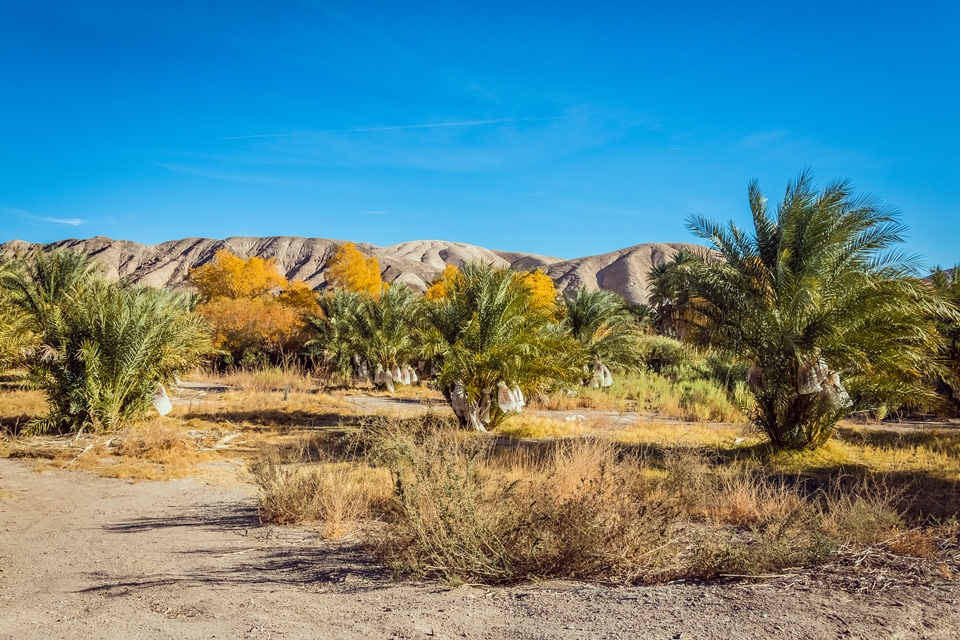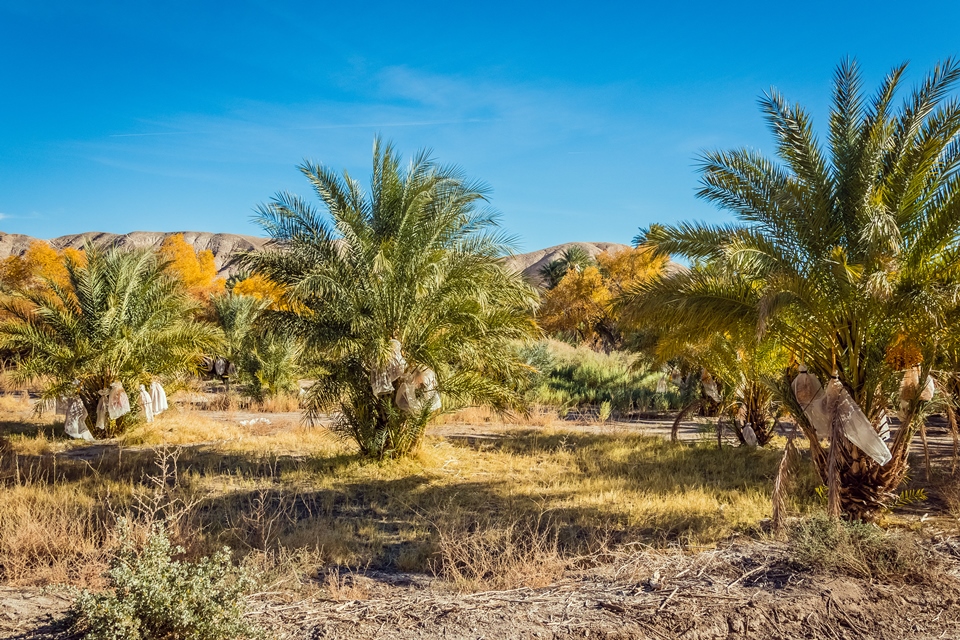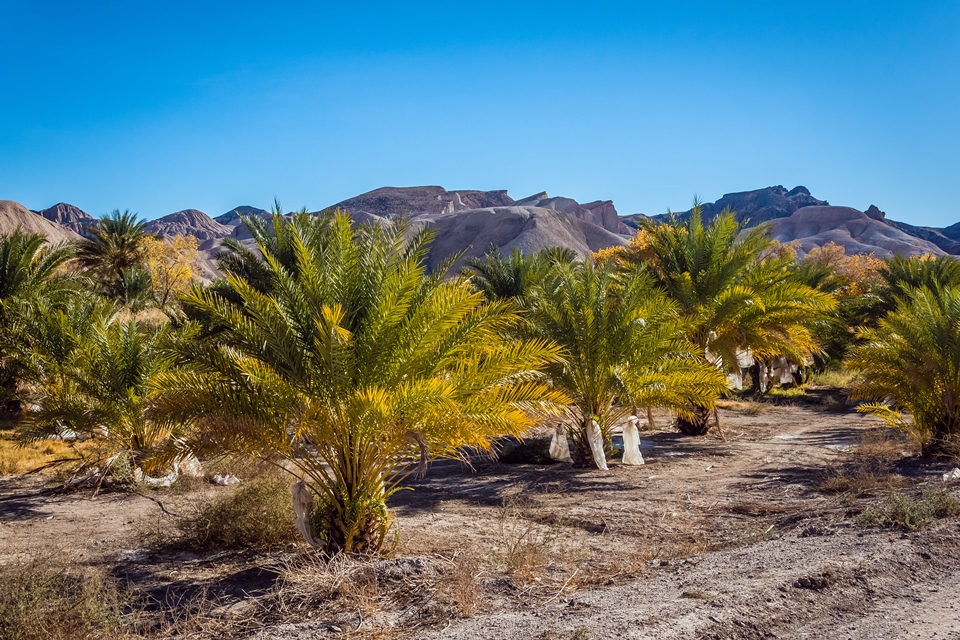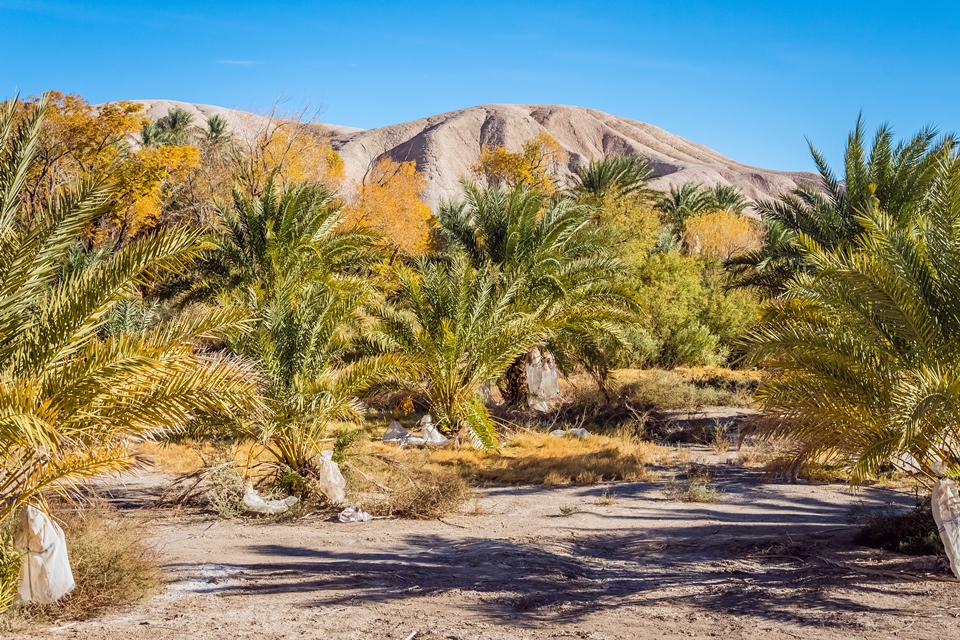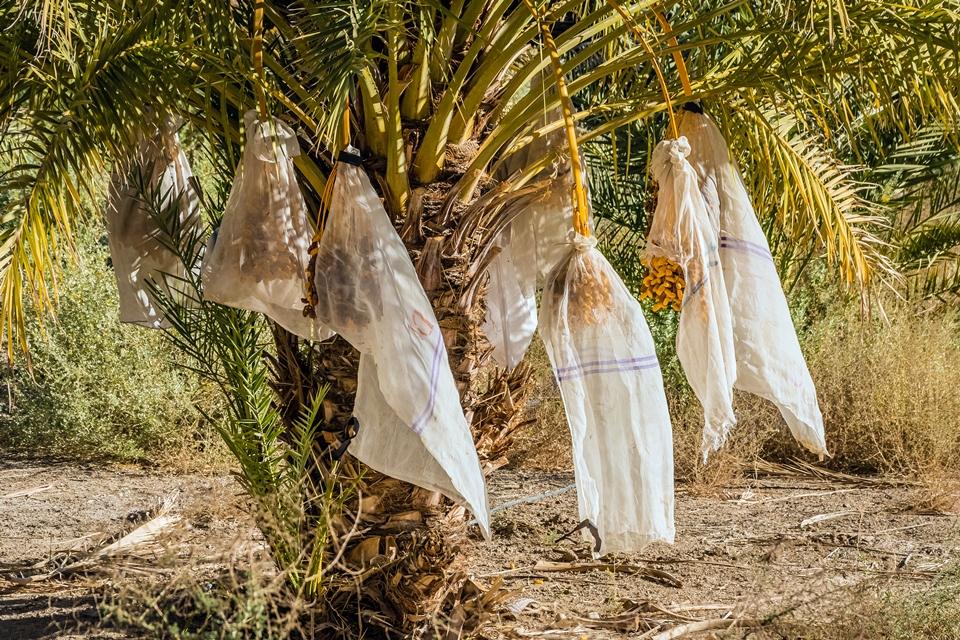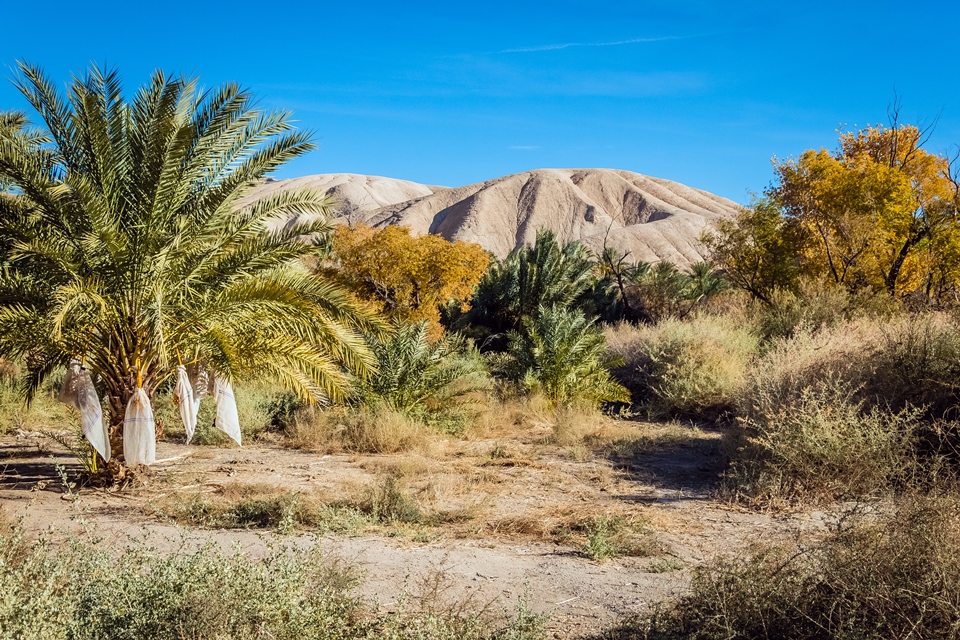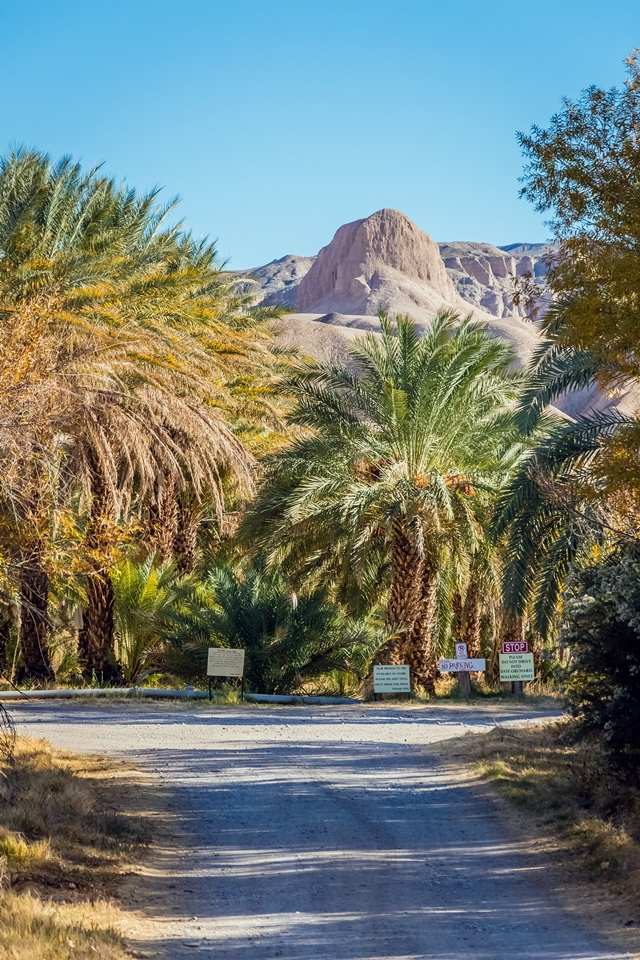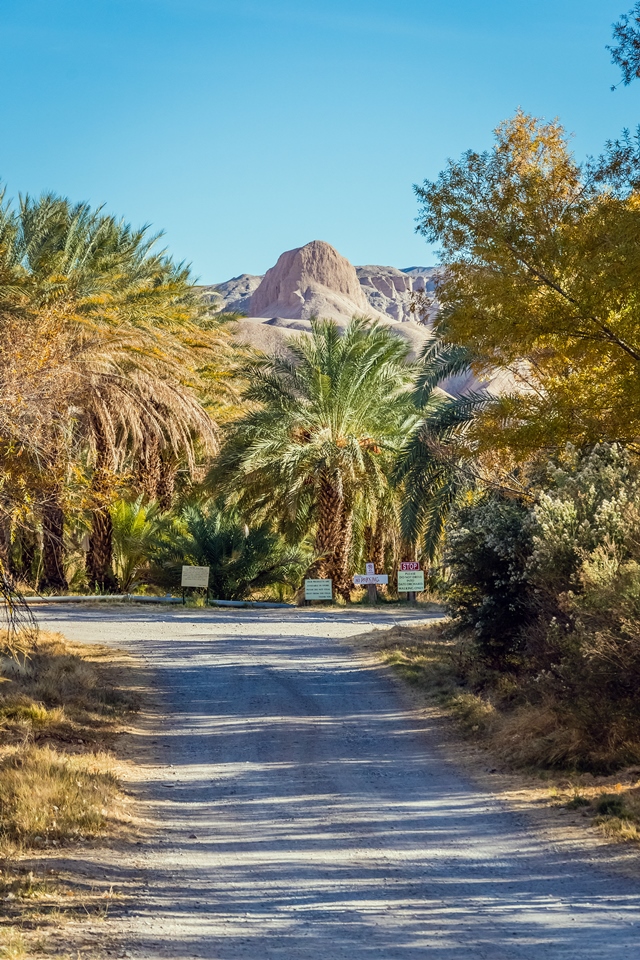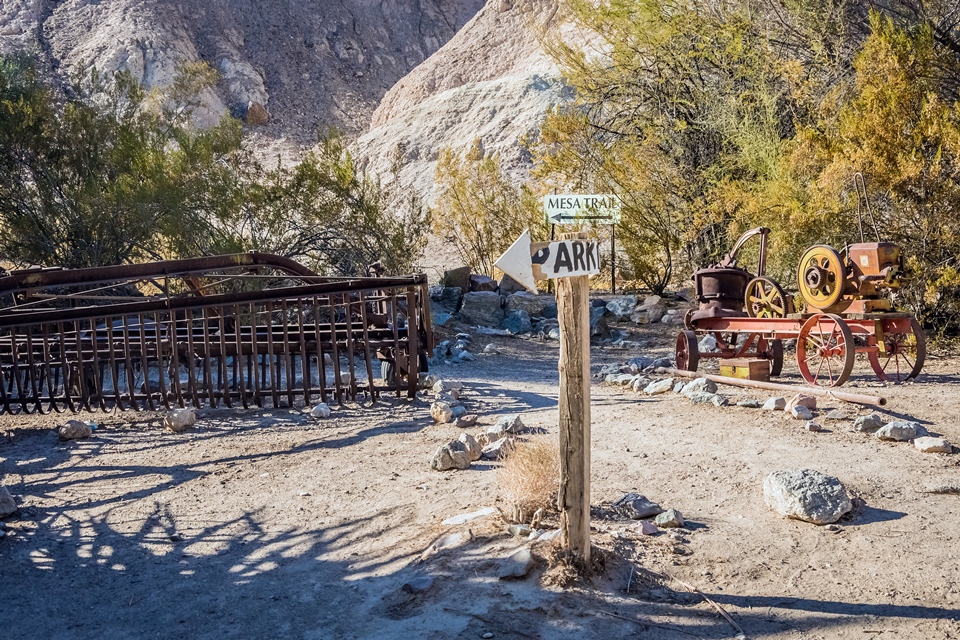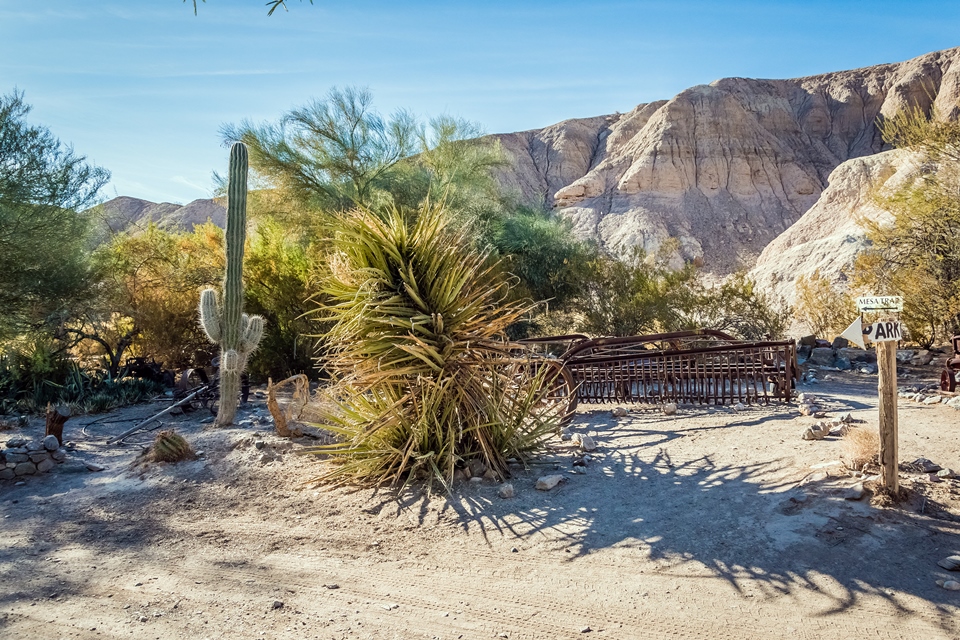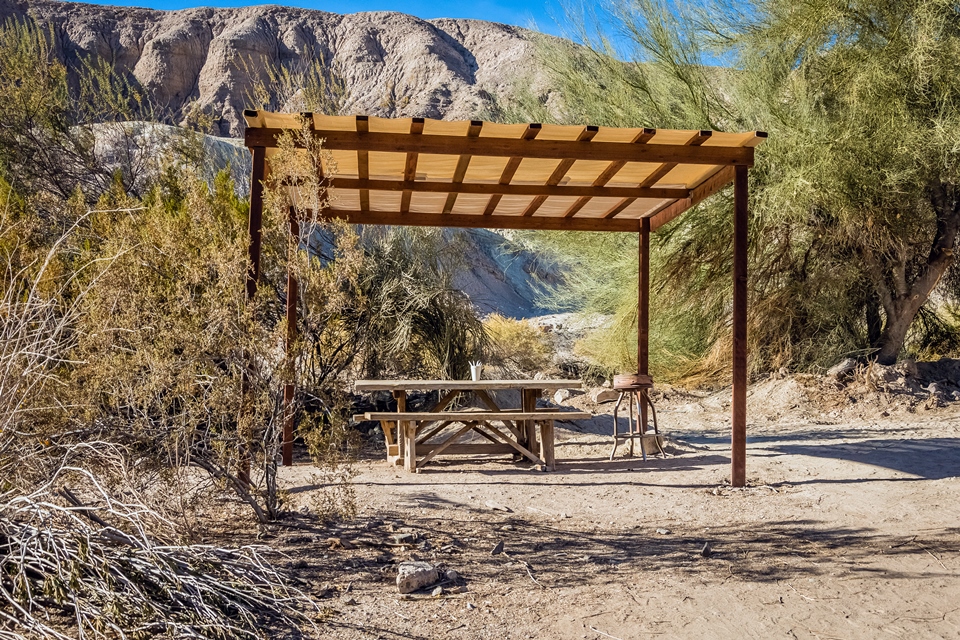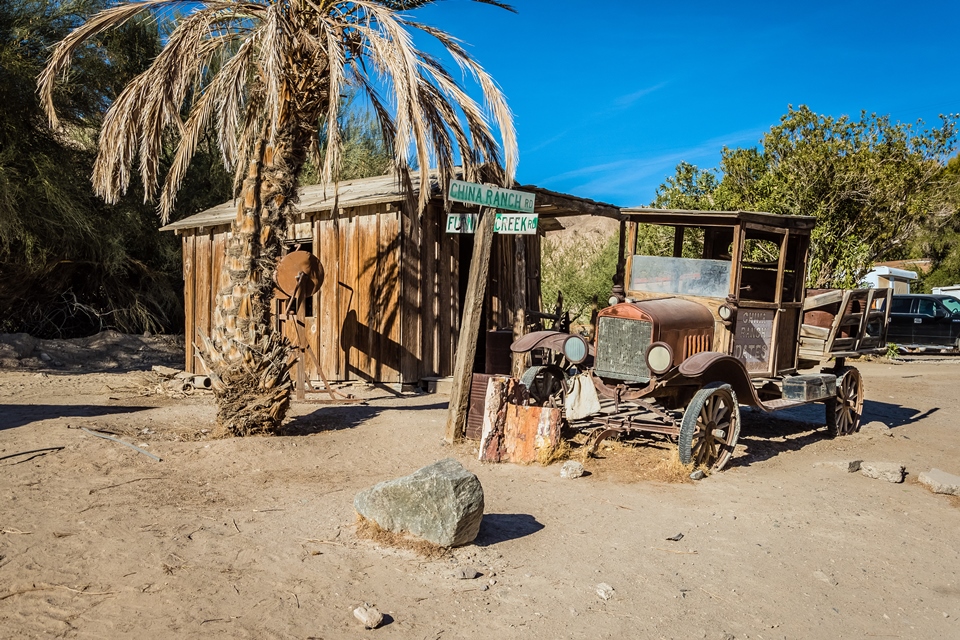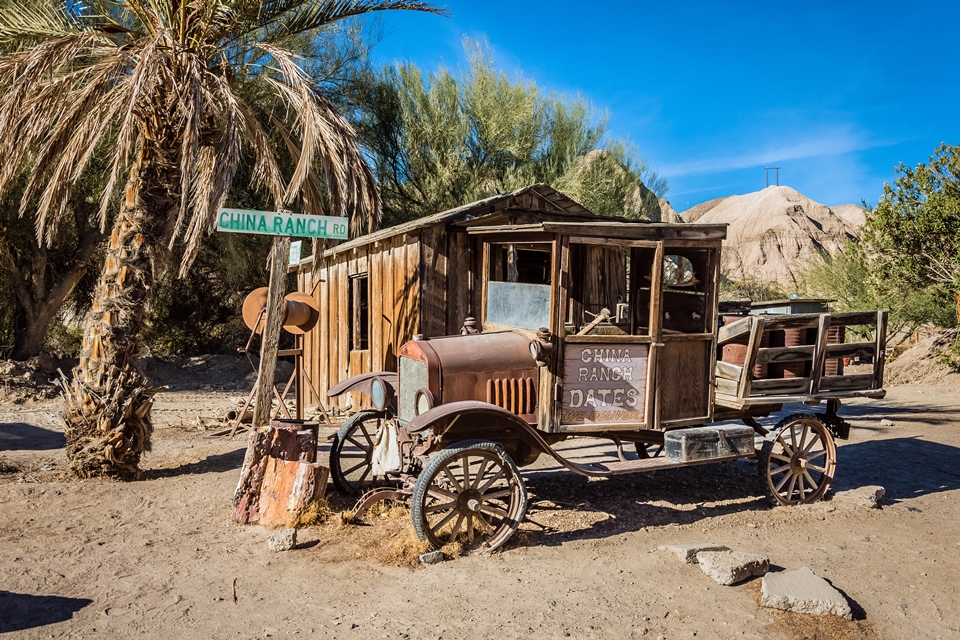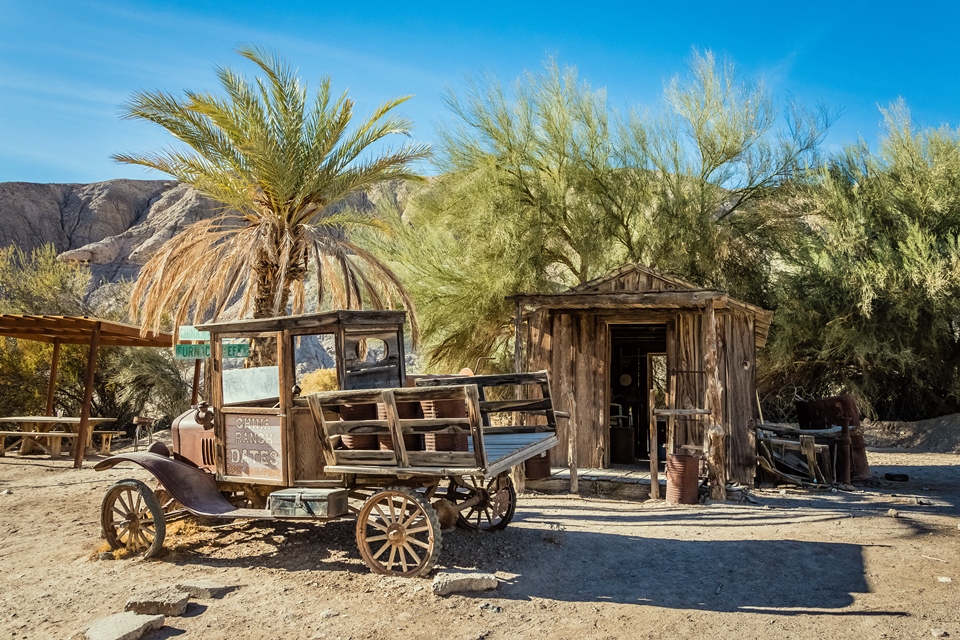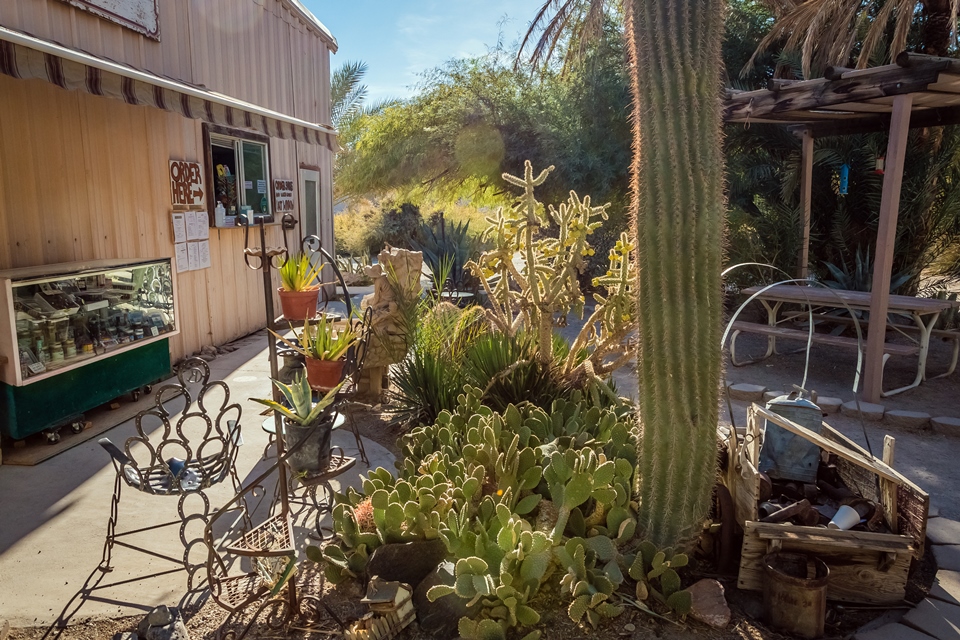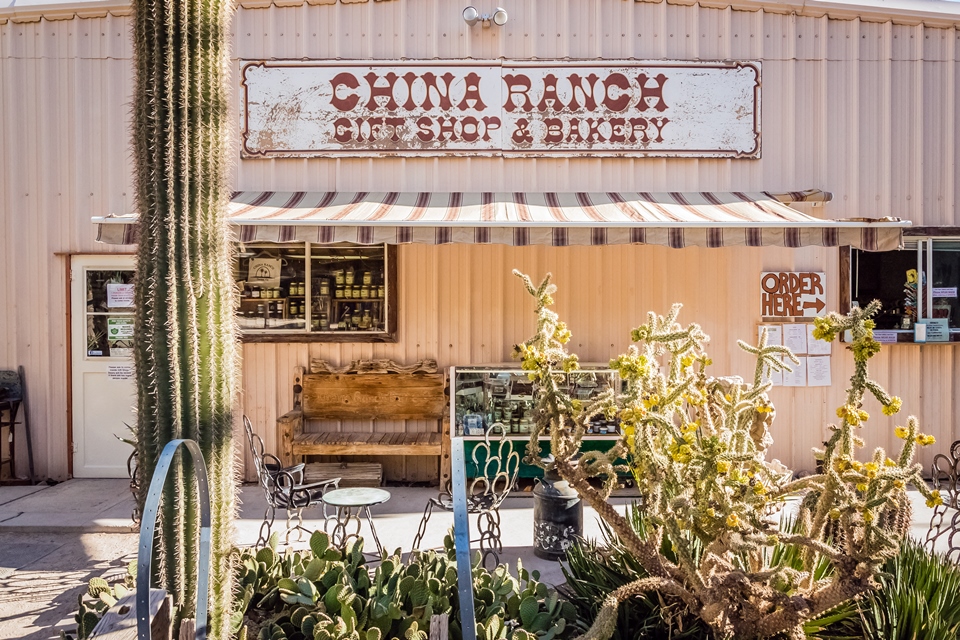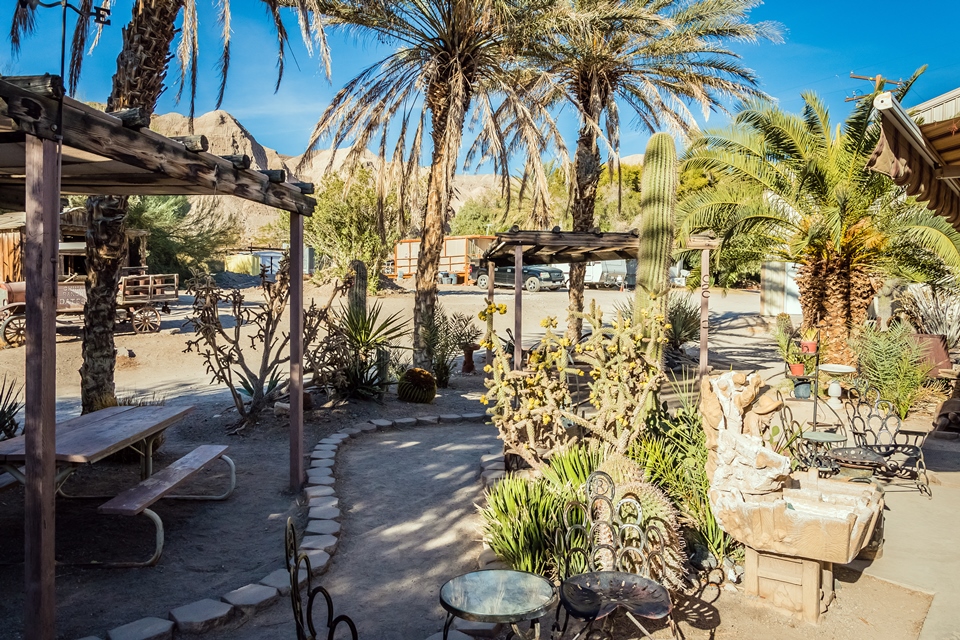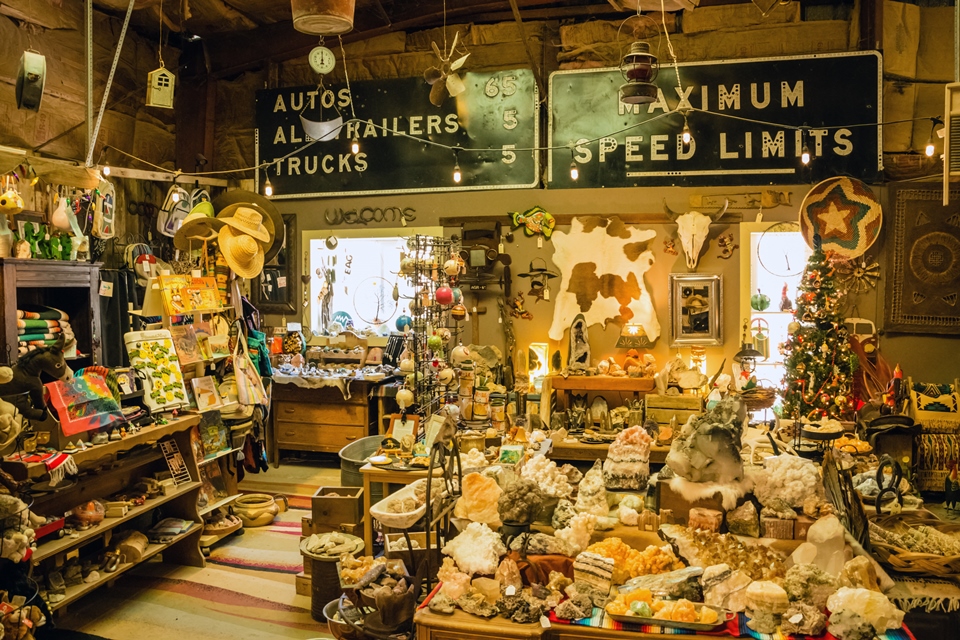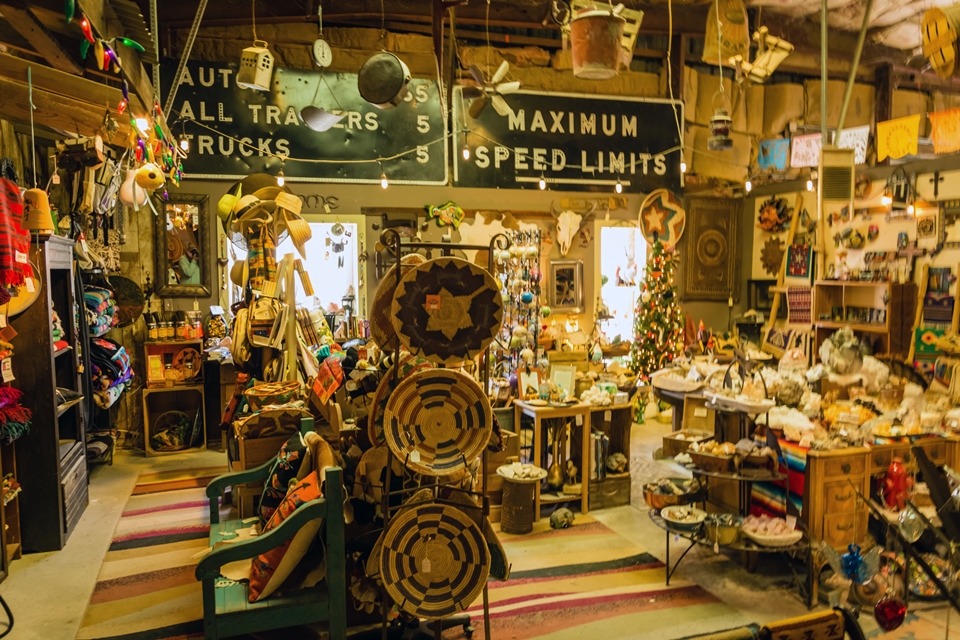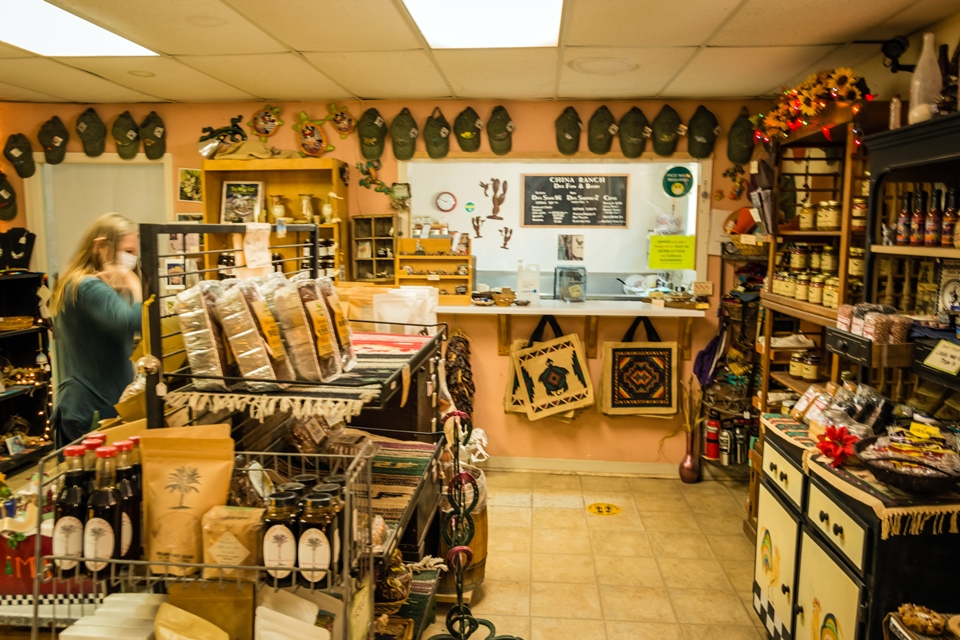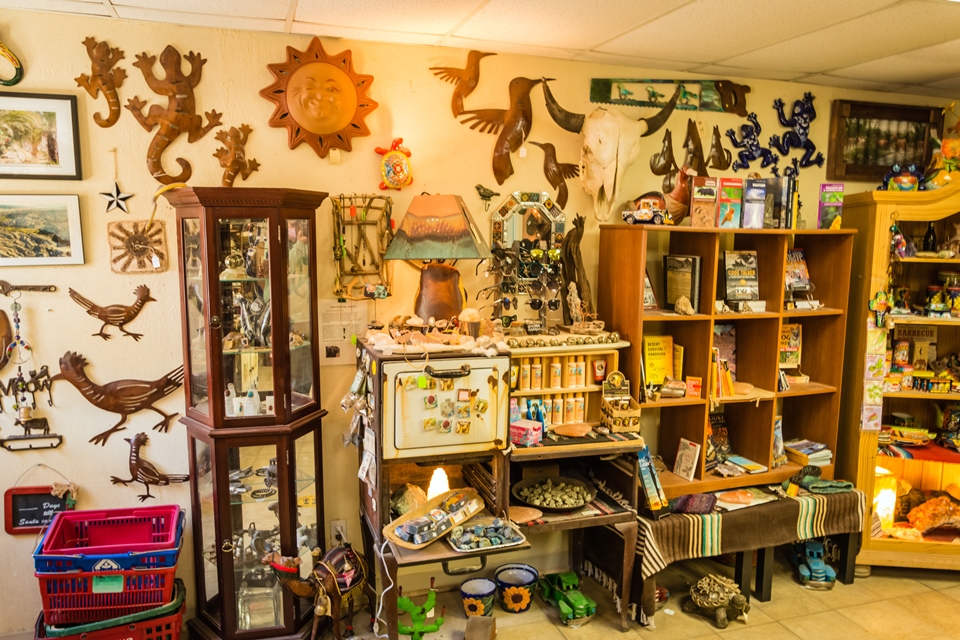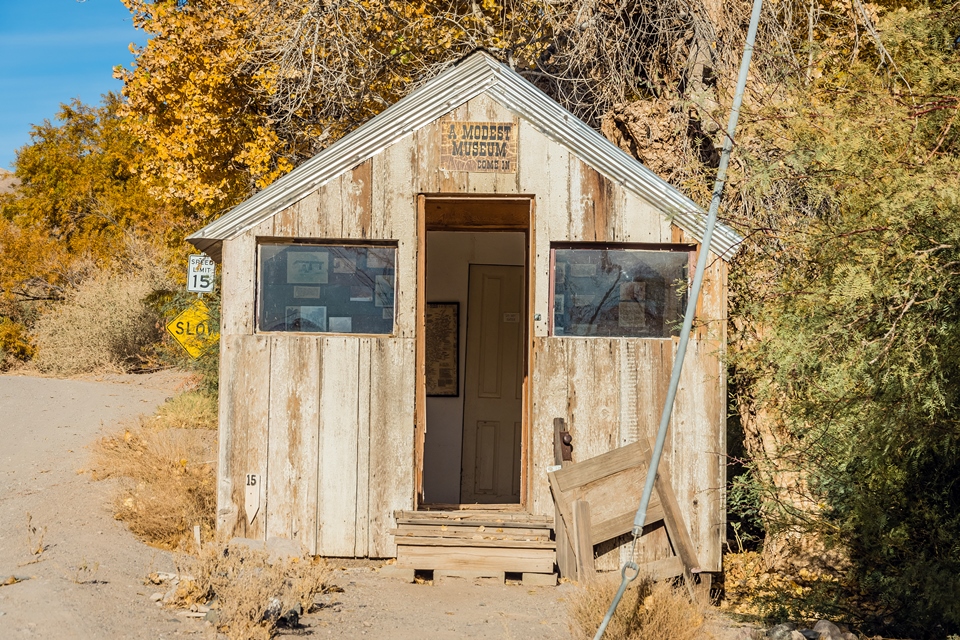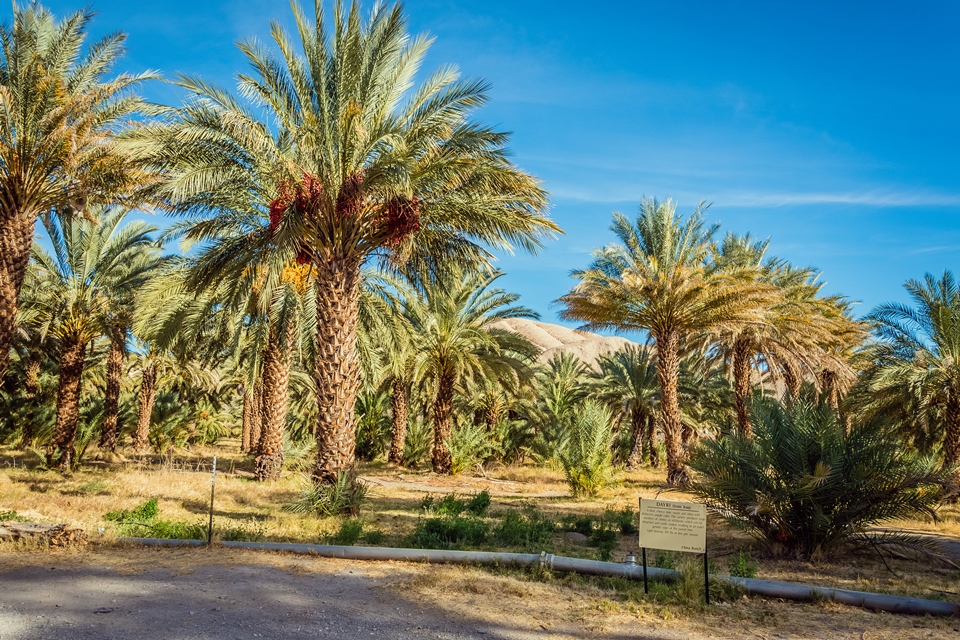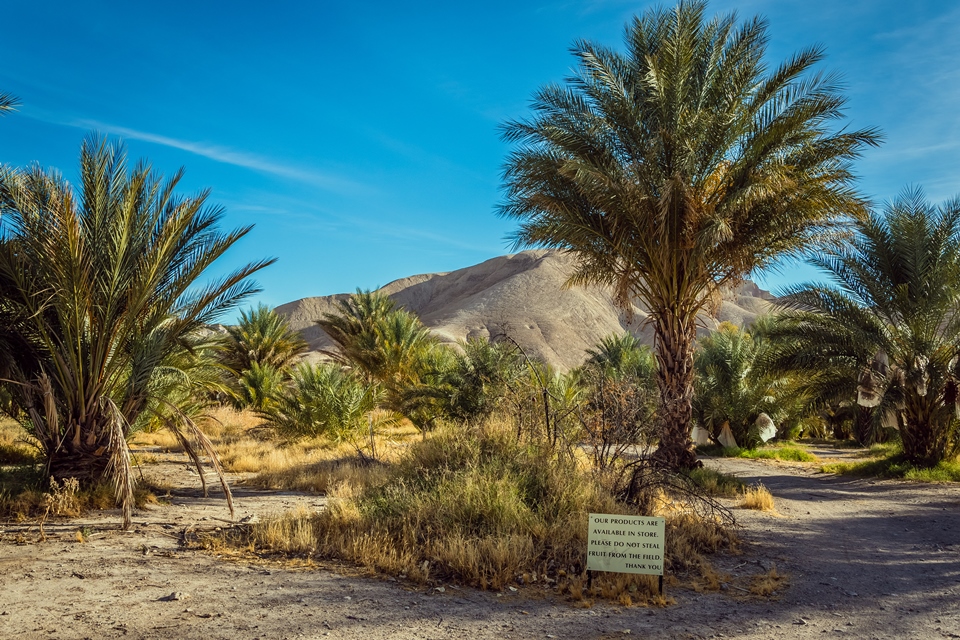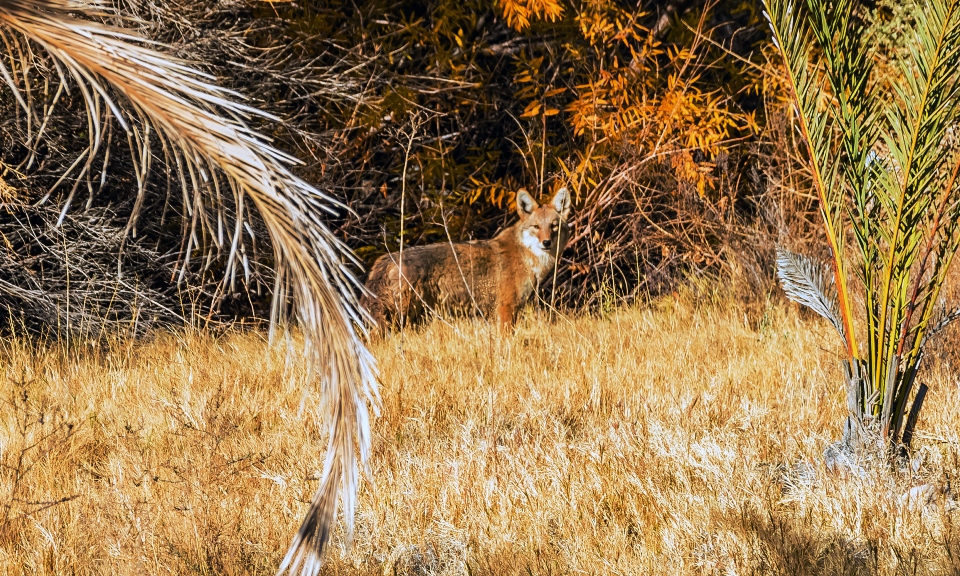DEEP IN THE MOJAVE DESERT, outside of Death Valley, there’s a lush oasis of palms, cottonwoods, and willows in a canyon. Tucked away from almost anything resembling modern civilization, the China Ranch Date Farm can be reached only by following a winding gravel road carved through steep, chalky cliffs.
Though the rugged drive can seem daunting, the payoff is yummy, as the century-old, family-owned farm sells its bounty in the form of numerous delicious date products, from breads and pastes to syrups and, of course, delicious date shakes made fresh to order. There are plenty of cultivated varieties of dates for sale as well, including deglet noors, medjools, and deep purple dayris. Depending on the season, China Ranch has also been known to harvest and sell hyany, sweet yellow barhi, and creamy khadrawy varietals. The farmer-owners even grow and sell a China Ranch exclusive hybrid date.
The property, dotted with historic structures and vehicles, is worth exploring if you can find shade along the way. A one-room museum, open since 2009, showcases local history dating back over 100 years. A small shop sells souvenirs and books, including the family’s date cookbook. There is also a nursery where visitors can purchase cacti, palms, and other native plants to take home.
China Ranch is a worthy detour for desert adventurers, as it’s close to several abandoned mines and the Amargosa River. If it’s been an especially wet year, hikers can easily trek to Amargosa Falls, a small waterfall near the property. The hiker-friendly historic trade route, the Old Spanish Trail, picks up close to the date farm oasis. Hike a short distance away from the date farm, and you may spot badgers, bobcats, coyotes, or foxes scampering along the cliffs and canyon trails. There’s also a surprising number of birds traveling through the oasis all year.
If in doubt about anything at the ranch, just ask the owners. They broke and maintain the roughly half-dozen trails radiating from the property. And of course, the obvious desert exploration rules apply. If you wish to hike, plan to visit the Mojave between October to April to avoid the intense 100-plus-degree summer temps.
